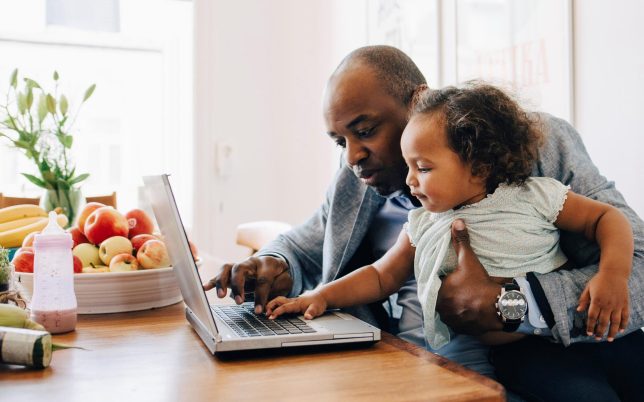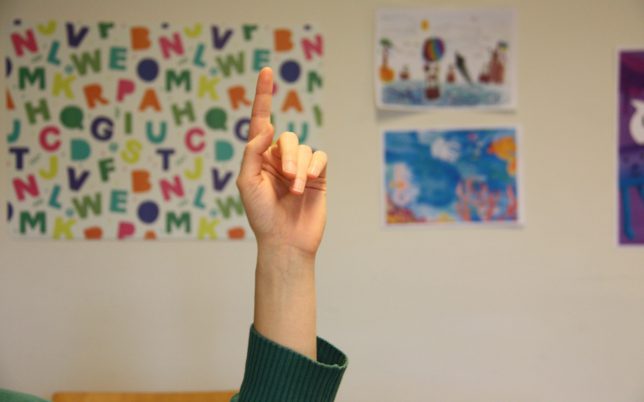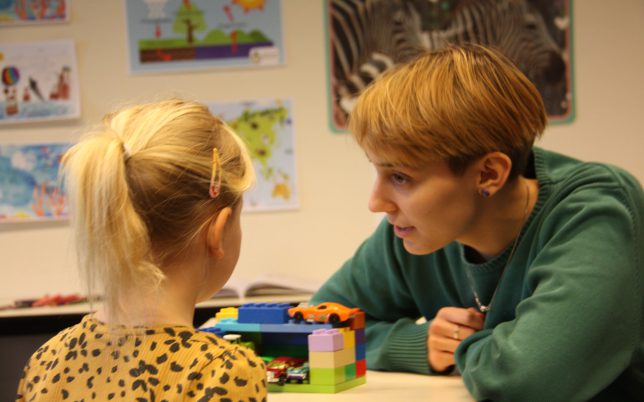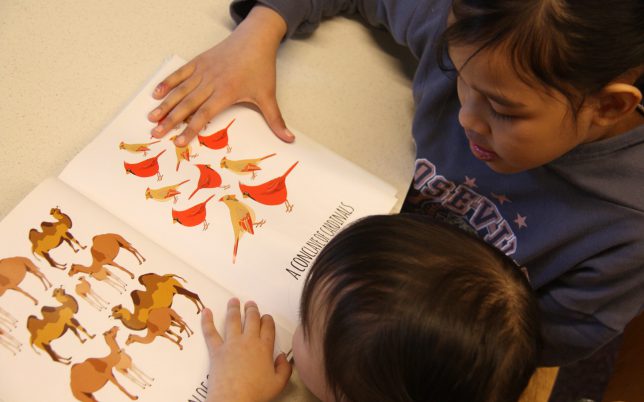Participate
Both multilingual and monolingual families with children between 1.5 and 10 years old can participate in our research. Below we tell you more about our ongoing studies and who can participate in each study.
Ongoing Research

Who's speaking which language?
Children are able to hear differences between languages from a very early age – even newborn babies can do this! But at what age can children also remember which language a person speaks? For multilingual children, it is important to know which language someone is speaking so that they can use the right language with the right person. However, monolingual children also encounter people who speak other languages. Understanding that not everyone speaks the same language can help spark their curiosity about different languages and cultures.
You can participate if your child is between 18 and 24 months old. It doesn’t matter how many or which languages your child hears at home – monolingual children are also welcome!
You and your child will visit the University of Amsterdam (Kloveniersburgwal 48), where your child will watch short videos of two people telling a story in Dutch and English. Your child only needs to watch the videos – it doesn’t matter if they don’t yet understand Dutch or English. While your child watches, we track their eye movements using a special device attached to the laptop screen: an eye-tracker. This allows us to study what your child focuses on. All the videos together last about 5 minutes. You will sit right behind your child in the same room throughout the session. Afterward, we will go through a questionnaire with you. The entire visit will take a maximum of 30 minutes.
Would you like to join this study or do you have questions? Please send an email to Elise van Wonderen (e.vanwonderen@uva.nl).

Do gestures help with comprehending language?
Previous research suggests that multilingual children pay extra attention to gestures as a strategy to understand others as well as possible when they do not yet understand all the words. In our study, we aim to investigate this further: Do both monolingual and multilingual children pay more attention to gestures when they hear words they do not know?
In this study, children watch videos of people saying a sentence (e.g., “Jimmy is in the house”) while making a gesture. At the same time, they see four pictures that do or do not match the gesture and/or the sentence. While the child watches the videos, we track their eye movements using a special device attached to the laptop screen: an eye tracker. This allows us to study where the child is looking.
We are currently looking for schools in the Utrecht and Amsterdam regions that would like to participate in this study. Children aged 5, 6, 7, and 8 years old (grades 1 to 5) can take part. It does not matter which languages they speak or how many —monolingual children are also welcome to participate.

Do you get what I mean?
We explore whether children take other people into account during a conversation. If you talk to someone about Lisa without them seeing Lisa or knowing who Lisa is, the other person does not understand you. Are multilingual children more considerate of a conversation partner than monolingual children? Perhaps! This may be because multilingual children learn early on that other people do not understand everything: if you just speak Turkish to someone who only understands Dutch, that person will not understand you. In this study, we want to investigate this idea further.
We currently have enough participants and are working on the analyses. If you are curious about the results, keep an eye on our website!

Language use in multilingual families
Parental questionnaires are often used in research on multilingual children. In these questionnaires, parents fill in which languages they speak to their child and how often. In this study, we are looking at whether these questionnaires are suitable. Do they provide reliable data?
Currently 102 multilingual families have participated in this study. We are now writing the article with all the results. You can already read about our first results here.
